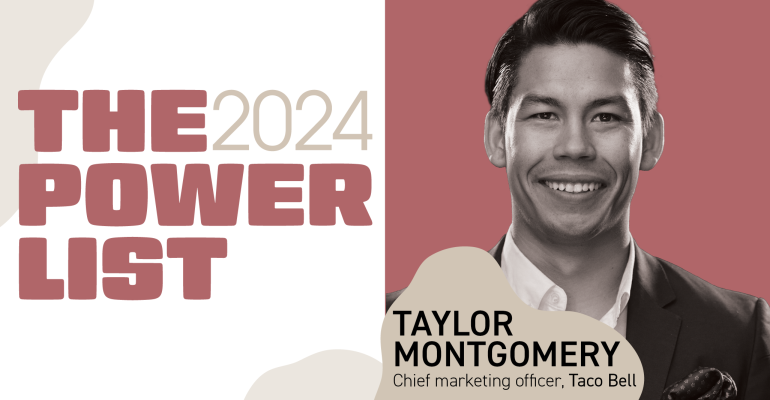Few, if any, restaurant brands leverage influencers as effectively as Taco Bell. The company’s inaugural Live Más Live event in February in Las Vegas illustrates as much, with about 300 attendees on hand to witness an Apple-like product showcase and without parameters on how to disperse the avalanche of product news released from that stage.
Throughout the event, creators voraciously recorded and shared every piece of information provided by company executives as if these ideas were their own. Indeed, it wouldn’t be unusual for some of these ideas to be their own because Taco Bell has cracked the co-creator code. This is evidenced not just by the influencers who have been handed VIP passes at exclusive events, but also through its new TBX program, inviting emerging chefs to help reimagine some of its signature offerings. Taco Bell also shares its culinary keys with startup companies like Beekeeper Coffee, Secret Aardvark, and Disha Hot.
It’s perhaps no surprise that Taco Bell was recently recognized by Rolling Stone for its marketing prowess. The publication noted that the chain is relevant and popular and connects with its loyal fanbase in “authentic and irreverent ways.” New CEO Sean Tresvant cut his teeth from marketing heavyweight Nike, where he spent more than 15 years in leadership roles before taking on the global chief brand and strategy officer role at Taco Bell. He built a deep bench at the QSR chain, starting with current CMO Taylor Montgomery. Montgomery spent six years learning the ropes at Procter & Gamble before joining Taco Bell in 2016 as a senior manager of brand marketing and innovation and working his way up.
Now, as CMO, he focuses on three areas of prioritization.
“One, getting tight on what our brand objectives are and how do we balance and acknowledge who we are as a brand — where we were versus where we want to go in five to 10 years. No. 2 is the business. What are the needs and goals of the business? No. 3 is the team,” Montgomery said. “There’s an X factor when you get creativity sparking and everyone’s pushing behind an idea. Sometimes you’ve got to go with it even if you don’t have it figured out.”
What Taco Bell seems to have figured out is that fan/influence piece, which is certainly a big piece. In 2023, the creator economy became a $250 billion industry, and Goldman Sachs predicts it will reach about $480 million by 2027. Montgomery said Taco Bell is uniquely positioned to leverage this co-creator landscape because the company has a strong relationship with its fans. How a fan is elevated to an influencer requires a much deeper connection, however.
“Like any relationship, the ones you love the most are the ones who are authentically who they are. There are a lot of people who want to do things with us as a brand, but they don’t share our values, so we just say, ‘no thanks,’” Montgomery said. “You have to be open, authentic, real, raw. When you do that, you start to become a magnet for others who do that.”
Of course, Taco Bell’s influencer relationships range from big names like Doja Cat, Dolly Parton, and Davante Adams to those with smaller followings, like Blake Hundley, who runs the company’s subreddit page and who was recognized as the chain’s inaugural Superfan of the Year. All these partnerships have one clear attribute in common that Taco Bell gravitates toward.
“We look for cultural rebels. They look different. They feel different,” Montgomery said. “Our influencer strategy starts with being clear on who we are as a brand. For us, we believe we’re a cultural rebel that leads and inspires others to lead culture. Then we start to look for others that reach and inspire people, whether on social media, through music, [or] in the kitchen.”
The ultimate goal for Taco Bell in creating such partnerships is to bring more consumers into its restaurants and more often. Montgomery believes the company can do that by getting unique perspectives from influencers, fans, and startups, and by creating those deeper relationships.
“We have to believe that others can help us be better. What can we learn from them? Sometimes bigger companies, we can overcomplicate things,” he said. “My job as a marketer is to unleash and inspire creativity throughout the whole organization. For us to grow at the clip we want, I have to think about being a connector — how we make something work for operations, finance, digital, in restaurants.
“Being a marketer today isn’t just about great ideas,” he added, “it’s about being a connector.”
Contact Alicia Kelso at [email protected]





